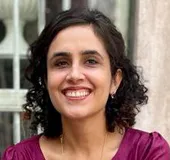-
CENTRES
Progammes & Centres
Location
Women’s leadership in India’s urban governance has steadily increased but they continue to face barriers such as limited experience, social stigma, and male-dominated political structures

Image Source: Getty
In recent decades, India has witnessed the remarkable emergence of women as crucial drivers for participatory democracy. Women’s participation as voters has impressively increased over the years in every election at national and state levels. Alongside women emerging as influential voters, their representation in local structures of governance, also called local self-government, is one of the highest across countries in the world. India is among the early adopters of gender quotas at the local government level, with very high participation by women in rural and urban areas. With the adoption of the Women’s Reservation Bill in 2023 for national and state legislative assemblies, it is timely to assess the impact of gender quotas on India’s urban self-governance institutions over the past three decades.
India is among the early adopters of gender quotas at the local government level, with very high participation by women in rural and urban areas.
India’s rapid economic growth has accelerated urbanisation with nearly half the population expected to reside in urban areas by 2035. With increasing urbanisation and worsening climate change, more women are expected to migrate to urban areas. Women and men use urban spaces differently and have different priorities when accessing urban services and infrastructure such as housing, transport, water and sanitation, health, and environmental resources, livelihoods, and economic opportunities. Research shows that most cities in the world fail to meet the basic needs of women, hindering their social and economic prospects, and thus widening gender gaps.
The increasing challenges in urban governance warrant more inclusive representation in administration to respond more effectively to evolving public needs.
Indian cities, with challenges of inclusivity and equity, need to make concerted efforts to address the needs emanating from these demographic shifts. The increasing challenges in urban governance warrant more inclusive representation in administration to respond more effectively to evolving public needs. The 74th Constitutional Amendment Act, adopted in 1993, reserved one-third of electoral seats for women in Urban Local Bodies (ULBs) or municipalities. In the 30 years since then, 20 states have progressively raised women’s representation to 50 percent in both rural and urban local bodies.
Research has revealed that a sizeable number of women have served as mayors, which is the highest office in Urban Local Bodies (ULBs) in India. For instance, in Tamil Nadu, 11 out of 20 mayors in various municipalities elected in 2022 were women. An assessment of work done by women mayors shows that they have positively impacted aspects of urban governance, such as sanitation, water, cleanliness, healthcare, safety, and mobility. From the first female mayor of Madras in 1957, Tara Cherion, who is credited for slum management initiatives and introducing mid-day meals in corporation schools, to more recent instances, such as that of Ajitha Vijayan, a former Anganwadi worker, who became mayor in 2018, and improved the water distribution network in Kanimanagalam, a region severely impacted by water scarcity and drought. Some of these women administrators belonged to politically influential families when they were elected, reinforcing the importance of social networks in gaining access to local political institutions. But in many other cases, women candidates with humble origins and limited prior exposure to politics, have been successful in winning electoral contests on their own.
Lack of experience and confidence is a persisting challenge faced by women leaders in ULBs, but many have demonstrated that they have the interest and capacity to learn on the job.
Some of the state-based studies throw valuable insights into women’s representation in local bodies and how many women manage to break stereotypes once elected to power. A study on ULBs in Rajasthan revealed that for women members of local bodies to shoulder administrative responsibilities effectively, having supportive families is important. Lack of experience and confidence is a persisting challenge faced by women leaders in ULBs, but many have demonstrated that they have the interest and capacity to learn on the job. A report on ULBs in Assam found that women experienced a tangible shift in their mindset, becoming more positive and self-reliant after winning seats. A study by the Jaipur Municipal Corporation revealed that women contributed to reducing gender prejudices both socially and in the municipality. Similarly, a report on the Kolkata Municipal Corporation showed that women councillors excelled in programme implementation and advancing community services and interests. Their performance often led to their re-election, even when their wards became open seats.
Elected women representatives in ULBs face different barriers from those that confront their male counterparts. A major section of women who are elected to ULBs have no prior experience in politics and administration. As most party structures, especially at the local level, are still male-dominated, women’s voices in decision-making structures remain limited. The persistently uneven distribution of unpaid care work between men and women due to prevailing gender norms impacts the work of women councillors and mayors who are also bound to household activities.
The increasing influence of money and muscle power required to contest any election in India, combined with the aggression and misogyny faced by women candidates hinders their participation in politics.
The capacity of women to exert influence is impacted by restrictive gender norms. Women councillors report facing social stigma and restrictions when they occupy positions of power. They are not considered to be assertive, knowledgeable, and able to lead well by large sections of society. The increasing influence of money and muscle power required to contest any election in India, combined with the aggression and misogyny faced by women candidates hinders their participation in politics. Reserved seat rotation every five years, aimed at inclusivity, limits women’s ability to build on their experience. Elected men often pursue multiple terms, while women are dissuaded from contesting unreserved seats by parties or male household members.
Studies have shown that, as representatives, women in ULBs lead to inclusive and positive outcomes by prioritising the needs of women and children and their communities. Women constituents find it easier to approach women councillors and demand resources like water and sanitation, pre-school education, and preventive health care.
Awareness and sensitisation campaigns need to be conducted to help change conservative perceptions about women’s participation in urban politics.
A few key initiatives would go a long way in strengthening women’s leadership in cities. First, a scaling up is required of capacity-building and training programmes for women addressing new challenges in urban governance like climate change resilience, environment and technology. There should be strict monitoring of the quality of these programmes. Second, establishing institutional mechanisms to ensure that women can discharge their functions without interference from male representatives, is much-needed. Awareness and sensitisation campaigns need to be conducted to help change conservative perceptions about women’s participation in urban politics. Third, implementing institutional reforms that ensure political parties encourage more women to participate in local politics and provide access to skills and networks for innovative fundraising for women. As women’s participation in local governance demonstrates its positive impact on policy outcomes, more concrete steps to strengthen women’s leadership in cities must be prioritised.
Sunaina Kumar is a Senior Fellow at the Observer Research Foundation
Ambar Kumar Ghosh is an Associate Fellow at the Observer Research Foundation.
The views expressed above belong to the author(s). ORF research and analyses now available on Telegram! Click here to access our curated content — blogs, longforms and interviews.

Sunaina Kumar is a Senior Fellow at ORF and Executive Director at Think20 India Secretariat. At ORF, she works with the Centre for New Economic ...
Read More +
Ambar Kumar Ghosh is an Associate Fellow under the Political Reforms and Governance Initiative at ORF Kolkata. His primary areas of research interest include studying ...
Read More +